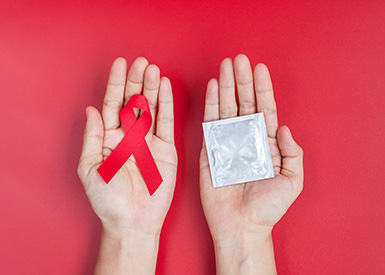
AIDS is a disease that can develop in people with HIV. It’s the most advanced stage of HIV. But just because a person has HIV doesn’t mean AIDS will develop.
HIV kills CD4 cells. Healthy adults generally have a CD4 count of 500 to 1,600 per cubic millimeter. A person with HIV whose CD4 count falls below 200 per cubic millimeter will be diagnosed with AIDS.
A person can also be diagnosed with AIDS if they have HIV and develop an opportunistic infection or cancer that’s rare in people who don’t have HIV.
An opportunistic infection such as Pneumocystis jiroveci pneumonia is one that only occurs in a severely immunocompromised person, such as someone with advanced HIV infection (AIDS).
Untreated, HIV can progress to AIDS within a decade. There’s currently no cure for AIDS, and without treatment, life expectancy after diagnosis is about 3 yearsTrusted Source.
This may be shorter if the person develops a severe opportunistic illness. However, treatment with antiretroviral drugs can prevent AIDS from developing.
If AIDS does develop, it means that the immune system is severely compromised, that is, weakened to the point where it can no longer successfully respond against most diseases and infections.
That makes t